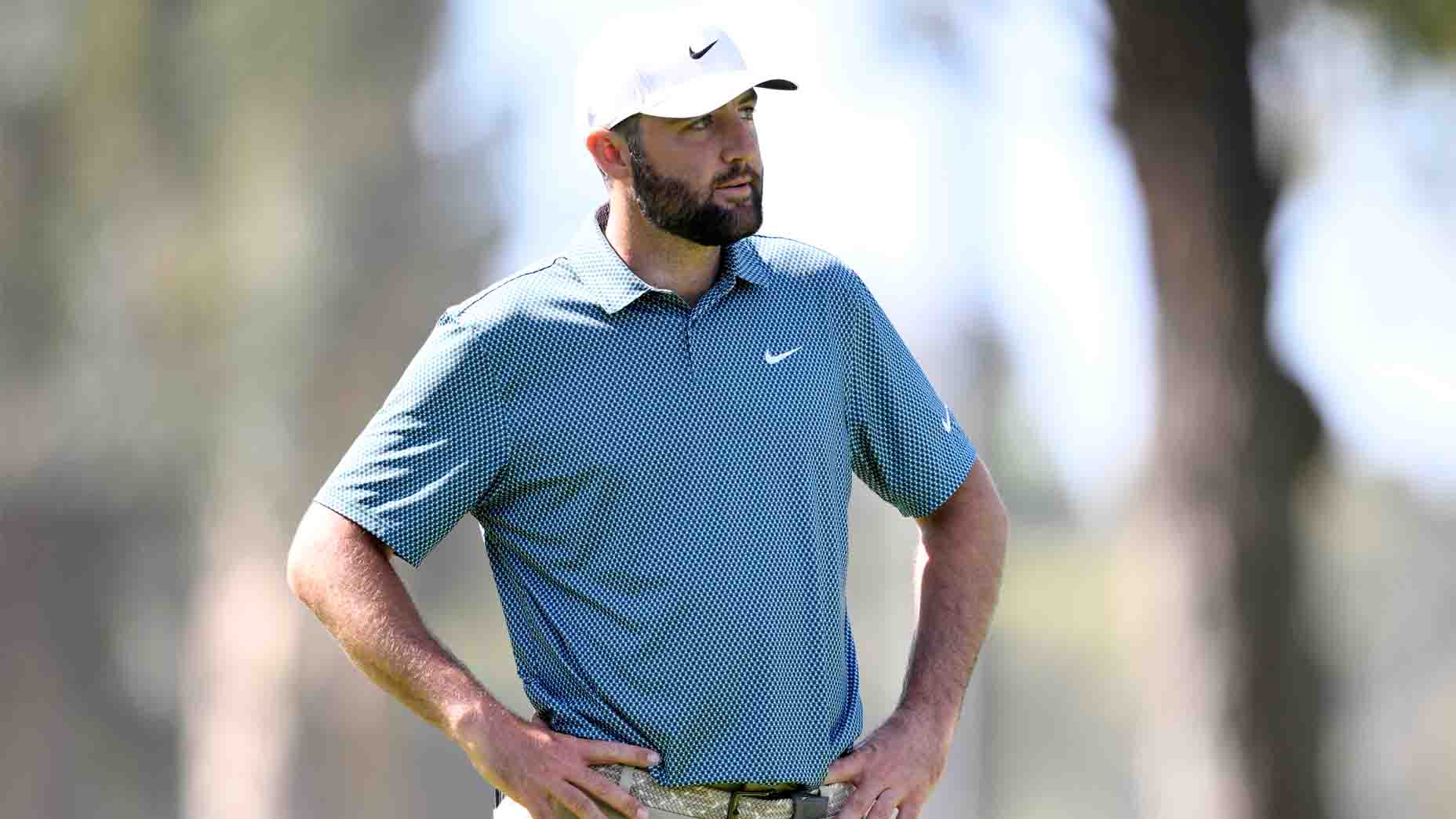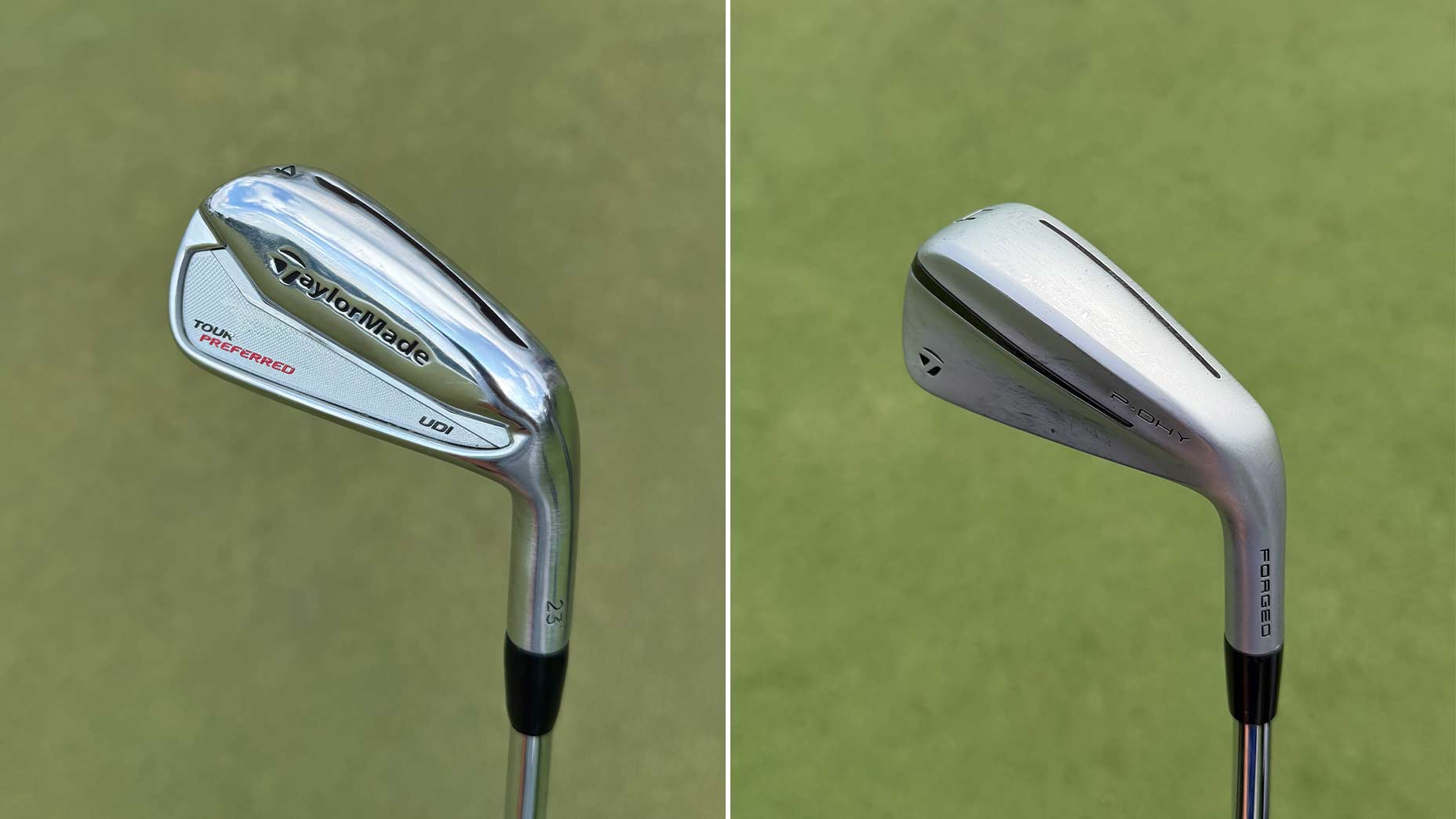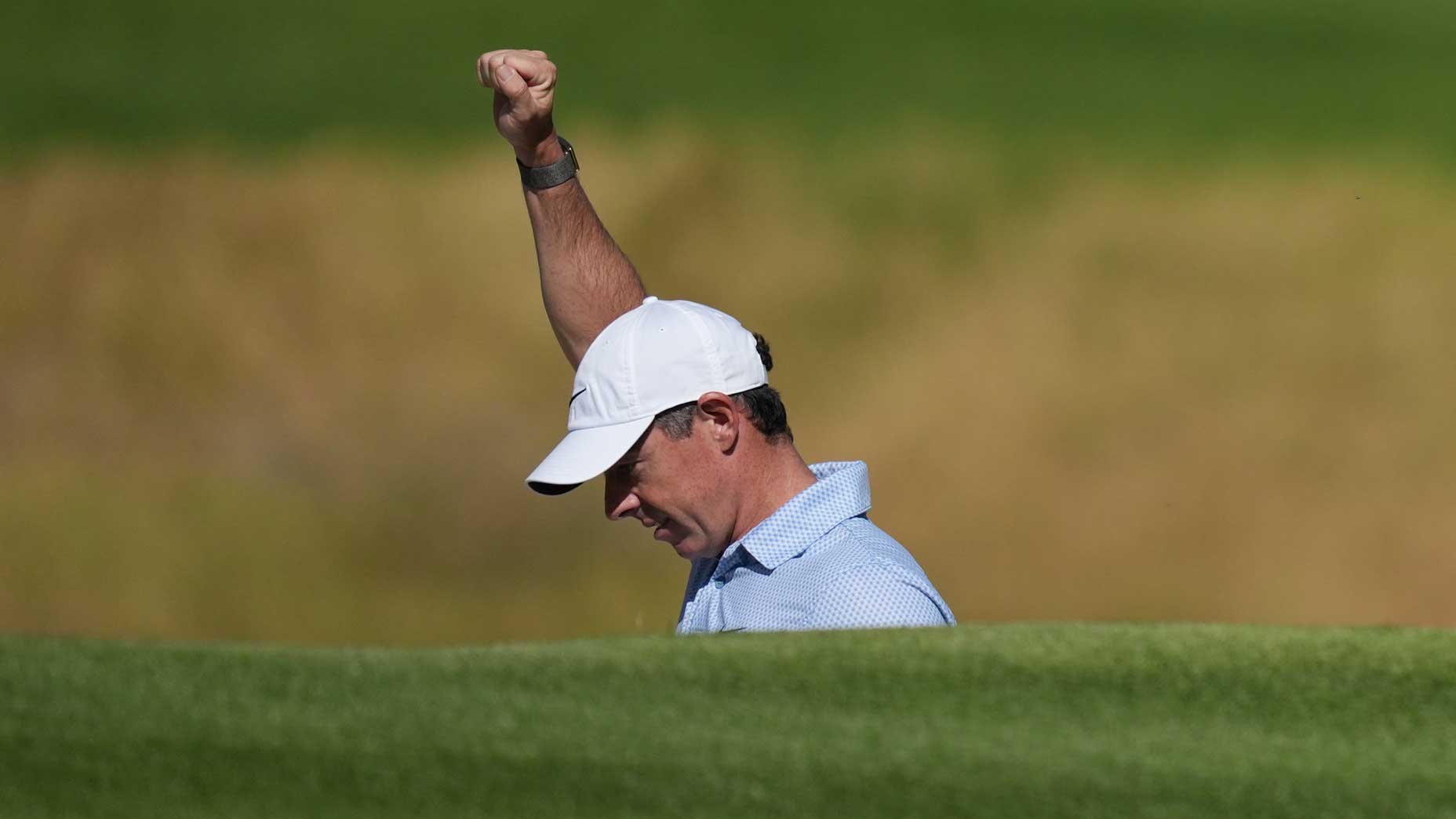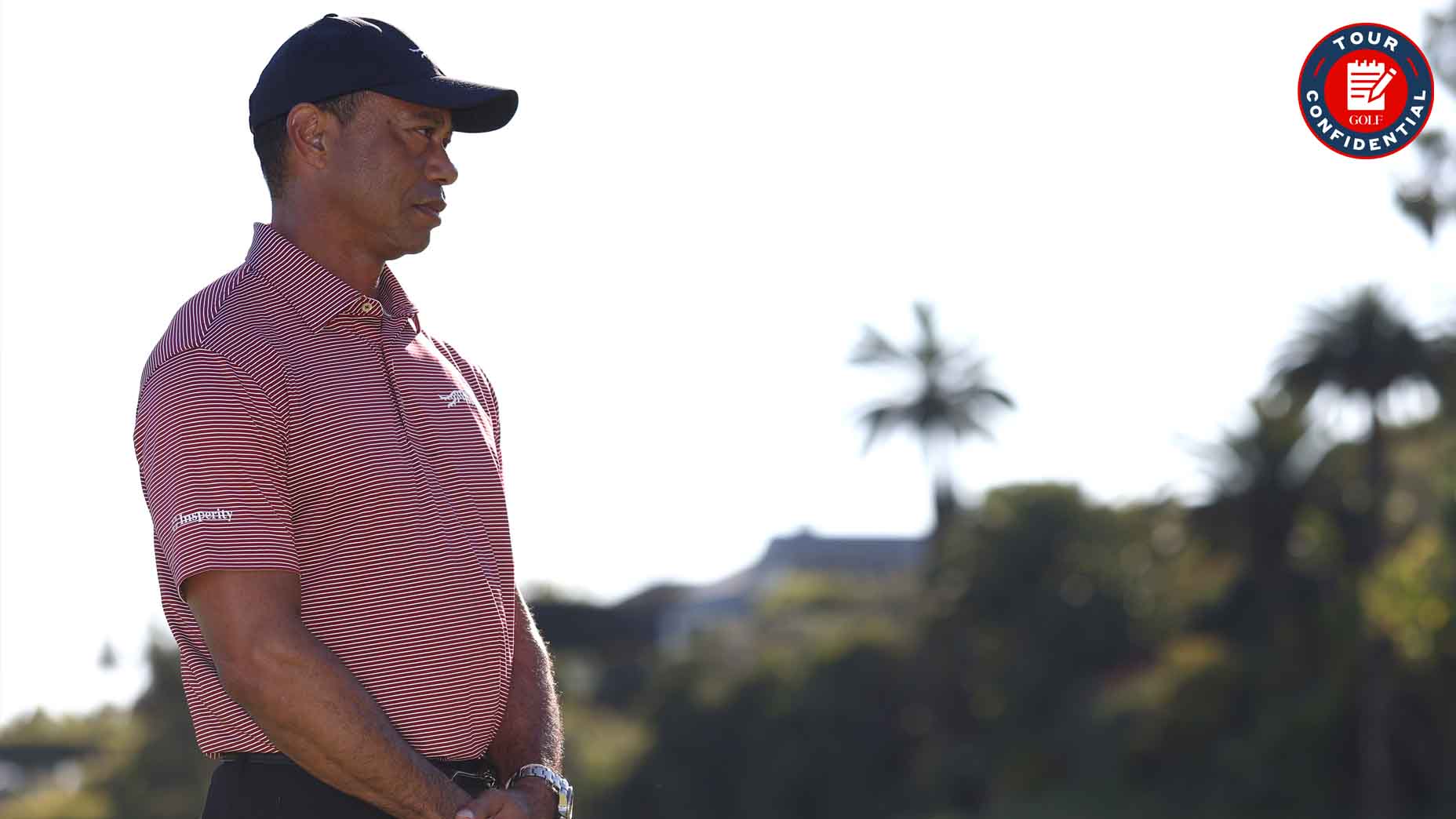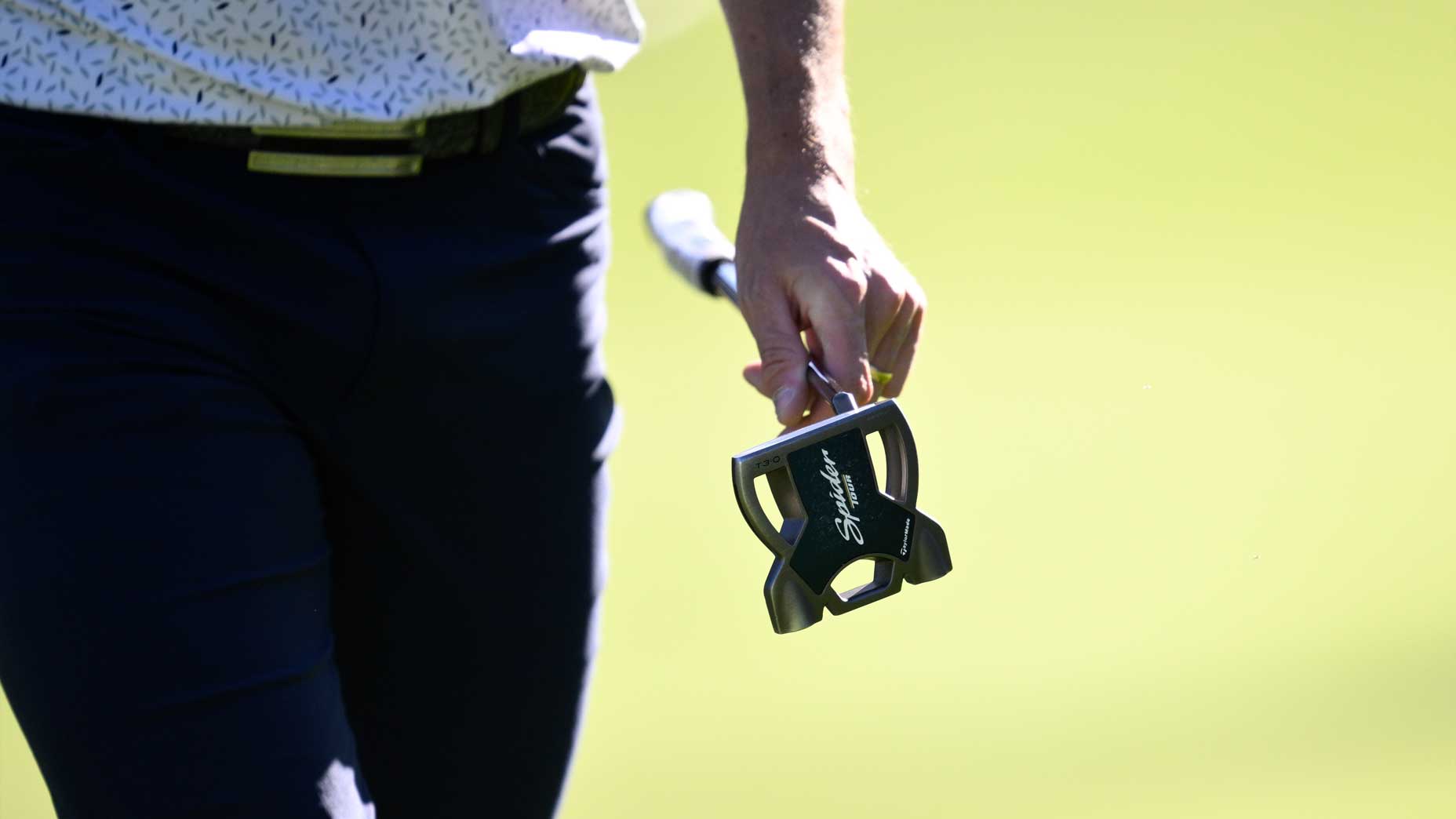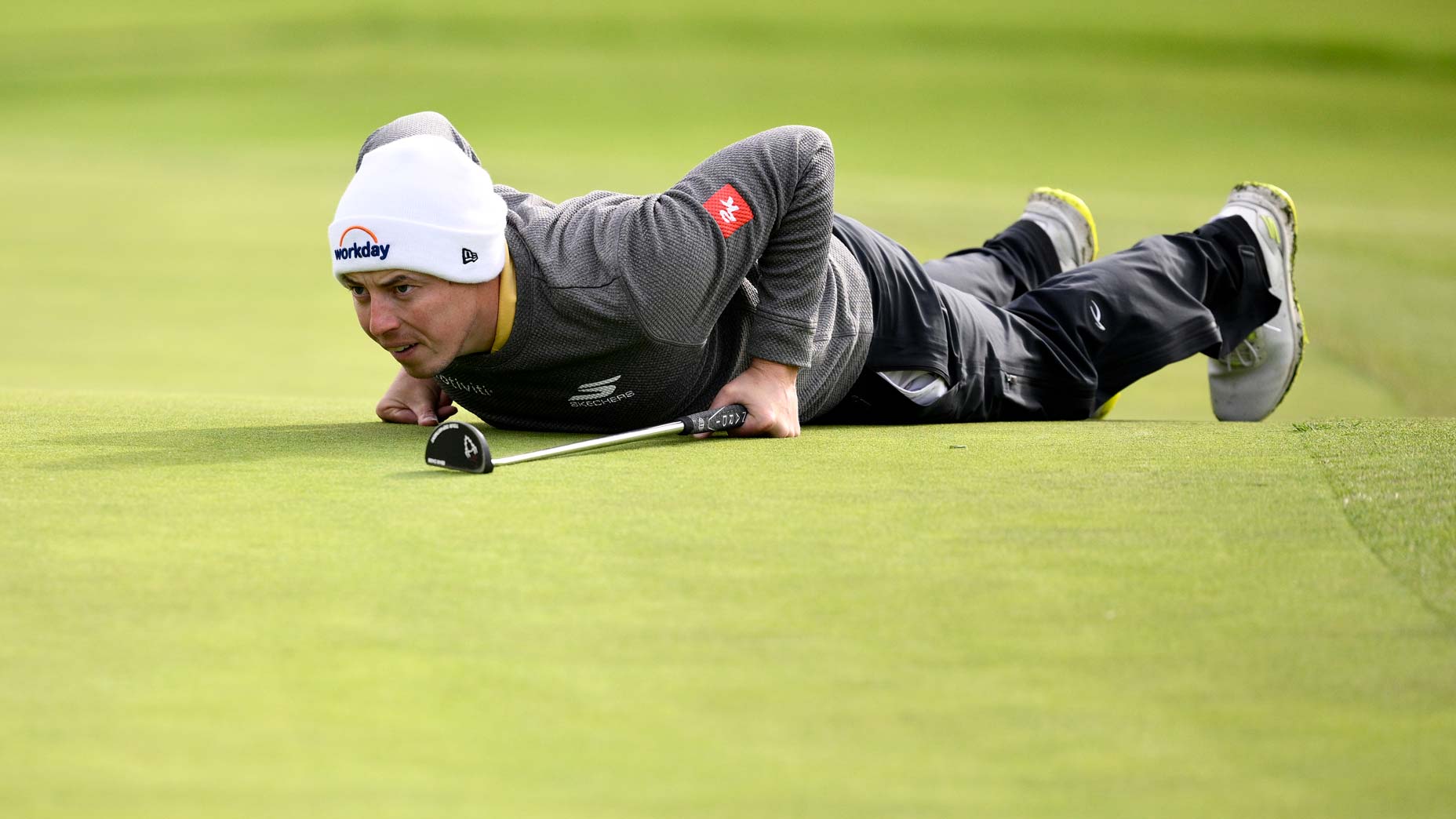Tiger Woods is back playing competitive golf. And like most times he tees it up, it’s been a thrill so far.
The galleries at this week’s Genesis Invitational are prodigious, mostly surrounding the tournament’s famous host. The buzz on social media is palpable, with any and everyone tweeting, Instagramming and talking about the Big Cat. Golf fans have been enamored since the second he teed it up this week at Riviera.
Through two rounds, his play has been impressive. Maybe not so much the scores he’s posted (a one-over total has him teetering on the cut line), but rather the shots he’s hit. There have been long bombs, low stingers and lasered irons. Knee-buckling par saves, curling birdie putts and agonizing lip-outs. For a man who has not played competitively since last July, he still has a spectacular array of shots in his arsenal.
But perhaps the most striking thing about Woods’ play thus far have been his ball-speed numbers — particularly with the driver. He’s cruised in the upper 170s most of the week, and has even pumped a few out there over 180. For a man who less than two years ago questioned if he’d ever walk again, that’s some incredible power.
Woods has always been one to get the most out of the swing he has at any given moment, but this swing is a little different. With a lingering leg injury from his car accident (not to mention the numerous back surgeries he’s undergone), generating that type of power isn’t so easy. But somehow, Woods has made it look routine.
Without the strength in his legs that he had in his prime, creating ground force reactions is a bit tricky. The tough part of that reality is that without using the ground, generating power becomes quite difficult. To make matters worse, when Woods relies too much on his core to create speed, he’s at risk of hurting his back.
“Before I would use the ground and push off and could be explosive,” Woods said. “I don’t have that ability anymore, so a lot of it’s just purely core strength but also being very careful because my back is fused.”
Woods shared that although these two power-generators are limited for him, he’s still able to use technique to get the speed he needs — but he does so very carefully.
“Yes, I can hit the ball harder, but it’s just, I’ve got to be very careful in how I go about that,” he said. “But yes, this is what I’ve been doing at home, this is the speed I’ve been hitting it.”
Whatever he’s been doing, it’s been working. And if he can stay injury-free, we can expect plenty more impressive speed from him in the future.



